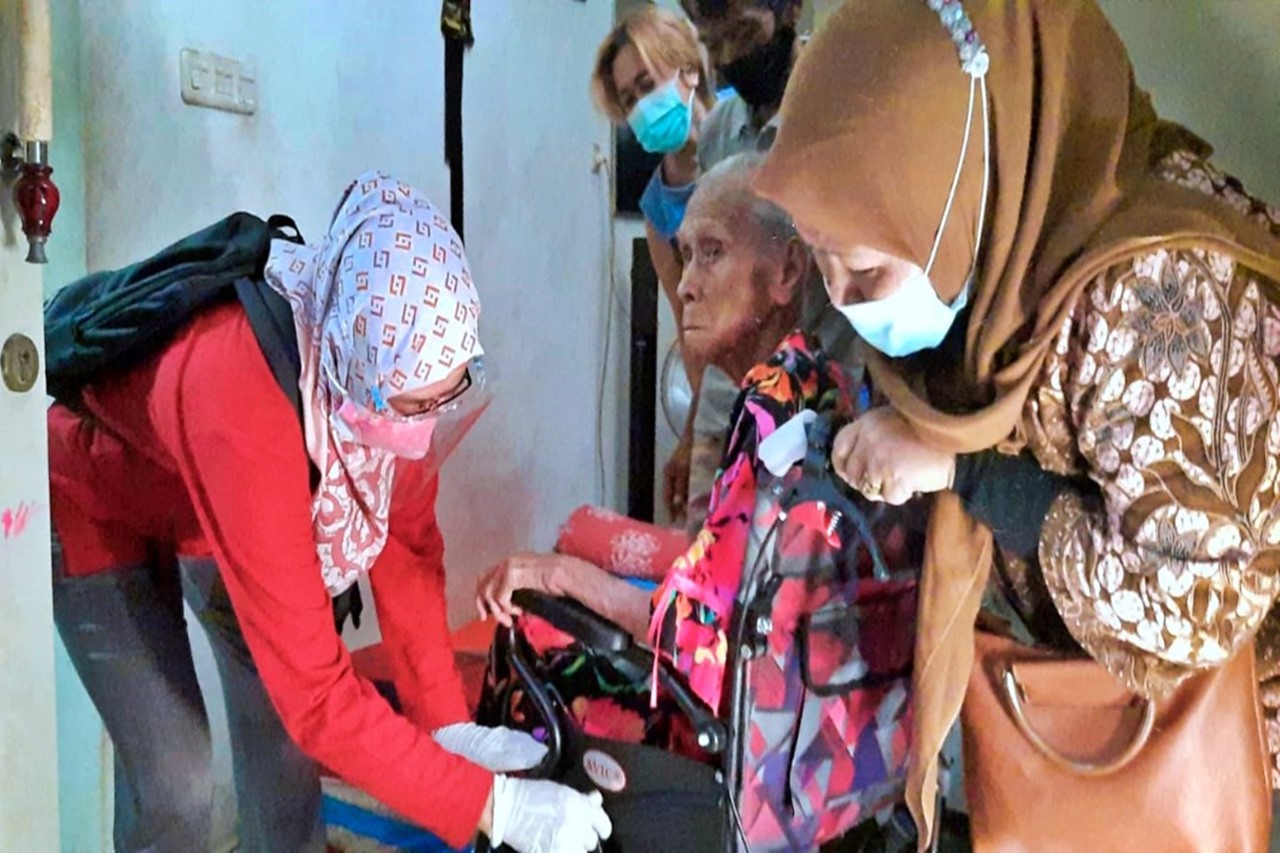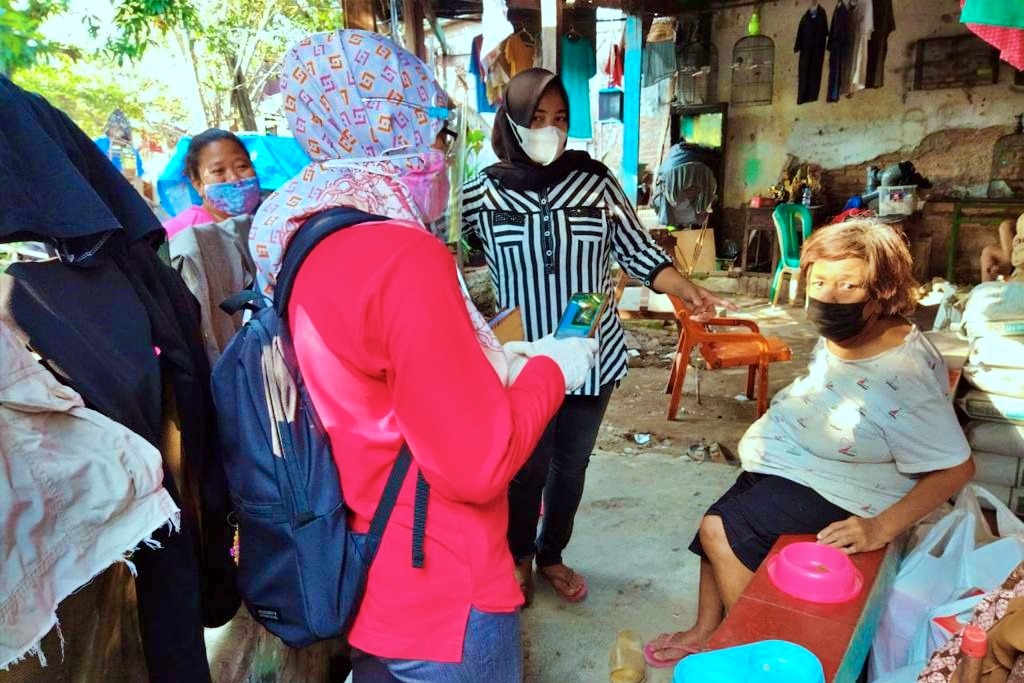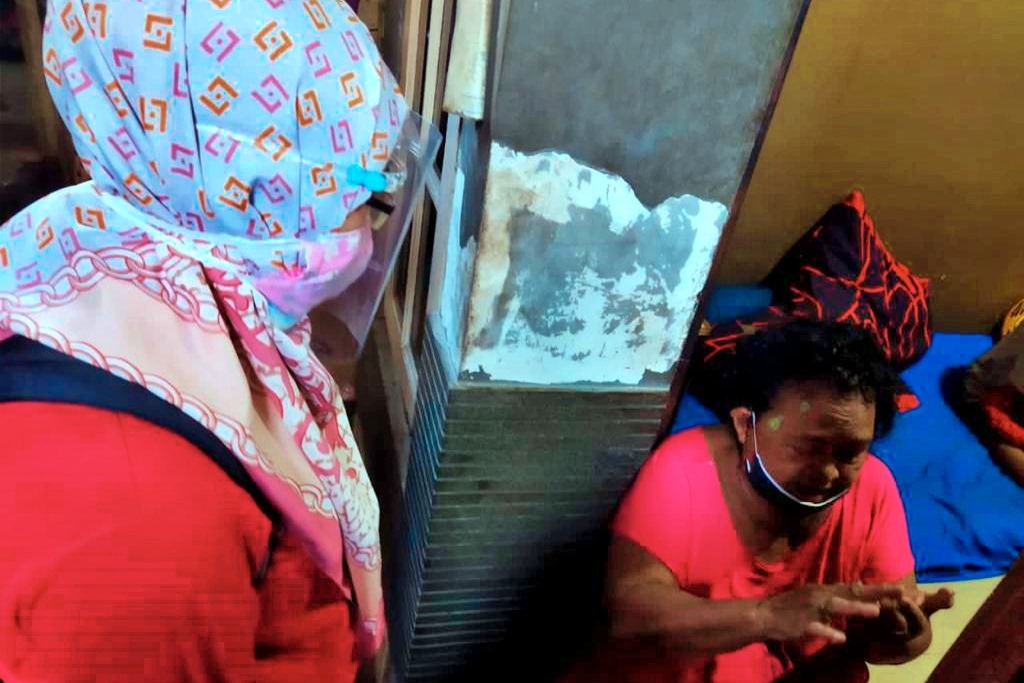JAKARTA
(July 28, 2021) - The Ministry of
Social Affairs through the Bekasi “Budhi Dharma” Social Rehabilitation Center
as the Technical Implementation Unit (UPT) within the Directorate General of
Social Rehabilitation carries out assessment activities for the elderly in
Kramat Pulo Village, Central Jakarta.
The assessment was carried out in accordance
with the direction of the Director General of Social Rehabilitation, Harry
Hikmat, so that the Center could deploy a team to carry out assessments for the
elderly who need assistance in this densely populated village.
“Send an assessment team to Kramat Pulo
village, Senen, Central Jakarta. Check the condition of sleeping equipment such
as mattresses, beds, pillows, bed linen for the elderly, as well as the need
for wheelchairs, walkers, canes, and adaptive wheelchairs that can be used for
bathing. Apart from that, they also check the needs of Pampers (adult diapers) and
the nutritional needs of the elderly," said Harry in his direction.
Furthermore, Harry also said that the team
could check the assistance received by the elderly. He emphasized that the team
should check whether the elderly are registered in the Healthy Indonesia Card
(KIS), the Family Hope Program (PKH), Non-Cash Food Assistance (BPNT), Cash
Social Assistance (BST) and/or other social assistance such as assistance
obtained from local governments.
Before going to the location, the team
coordinated with the Central Jakarta Social Service Sub-Office. Furthermore,
the team collaborated with the Karya Putra Indonesia Mandiri Foundation (KPIM)
for caring for children and the elderly, the Family Compensation Center
(PUSAKA) 120, and local RT/RW to obtain data.
Kramat Pulo Village is a densely populated
village whose average population is the Betawi ethnic group. No wonder most of
the residents' livelihood is to open ondel-ondel making services or to go
around offering ondel-ondel art services for various events such as weddings or
circumcisions. Besides being known as the Ondel-ondel village, this location is
also known as the Ondel-ondel Craft Center.
Ironically, not a few social problems also
arise at this location, such as several elderly people who were visited by the team
today. A team of five Centers officers managed to visit the village locations
and found a total of 16 elderly with various social problems.
One of them is Waryanah, a
71-year-old grandmother who has lived with her seven children, daughter-in-law
and grandchildren in this narrow two-story wooden house for 10 years. His
physical condition is weak because she has diabetes, stomach pain, and low
blood pressure which makes her often stagger.
Every day she sleeps on a
carpet with a bolster pillow condition that is not suitable for use. The
fulfillment of his daily food needs is made by her son who lives on a lease not
far from her house because the cooking utensils (rice cooker) have been damaged
and have never received government assistance.
"My daily food is
cooked by my son, who works around bringing ondel-ondel, during this pandemic,
he only gets 15 thousand a day, sometimes 20 thousand rupiahs," said
Waryanah stammering.
"Sometimes for extra,
we also collect plastic bottles to sell again, one kilo can get three thousand,
for a kilo sometimes it can take up to three days to collect it", he
added.
There is also Abdurrahman
(76 years old), in his old age, this grandfather still works making ondel-ondel
dolls to be sold as souvenirs. Hearing that has diminished does not reduce his
enthusiasm to remain productive by running a business that he has been engaged
in for decades.
In addition, there was also
Urip (79 years old), an elderly who is also person with a disability in his
right hand. He lives in a tarpaulin hut with his wife who had a stroke. Both of
them sell sugar palm beside the railroad tracks and have never received any
assistance.
''We sell coconut shells
every day, there are 15 thousand per pack, some 35 thousand. Thank you, ladies
and gentlemen, we wish you all good health and ask us to be helped," said
Urip.
Based on the results of the
assessment carried out by the team, some of the elderly will be provided with
family-based ATENSI services with the average elderly being recommended to get
nutrition packages (elderly milk, biscuits/snacks, honey, and dates), room
facilities assistance (mattresses, pillows, bolsters, etc.) blankets and
sheets, health care (multivitamins, masks), and personal hygiene (soap, laundry
soap, toothbrush, toothpaste).
In some elderly, it is also
recommended to provide accessibility assistance such as canes, walkers, or
wheelchairs according to their needs. Business capital assistance is also
provided for the elderly and their families to support their businesses to meet
their daily needs.
Apart from the 16 elderly
who have been assessed, there are still 17 elderly data that need to be
followed up. The condition of the population density in the location and the
period of the Covid-19 pandemic that has not subsided, which causes the need
for time for follow-up.
Not to forget, when
entering the field, the team always applies health protocols in carrying out
assessments during this Covid-19 Pandemic. The team jumped in with complete
Personal Protective Equipment (PPE) such as the use of double masks, face
shields, and gloves.
 Bahasa
Bahasa
 English
English




